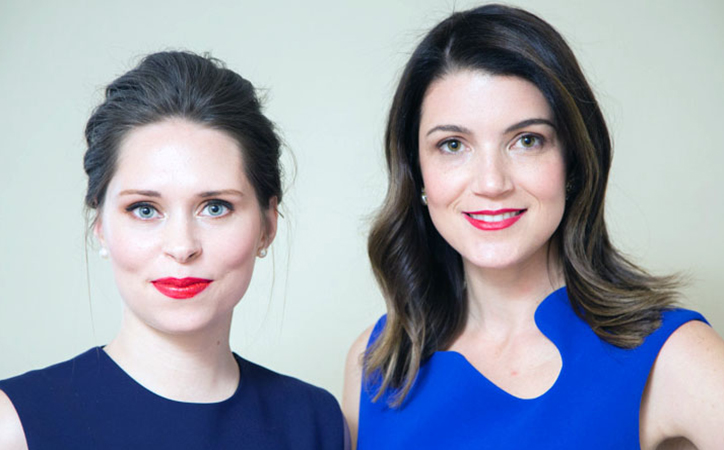
We are thrilled to share the second post in “Tell Me More”—a new series that aims to go deeper on fast-growing, future-thinking industries. Our newest piece celebrates women who are leading businesses that create flexible job opportunities.
If you’ve been dreaming about adding more flexibility to your life when it comes to your job, know this: The tide is turning your way. Companies are increasingly beginning to understand the ROI on offering flexible job opportunities, as you’ll hear from the Leading Ladies we’ve featured here. In addition to increasing retention, companies offering more flexibility are more likely to get a diverse and talented pool of applicants. “Companies understand this is basically their time to get ahead of the curve and to offer services that will attract the best talent,” says Annie Dean and Anna Auerbach, founders of Werk, which creates technology to put flexibility insights and data into the hands of companies to help them work smarter.
Show Me the Data
Economists say flexibility in jobs will help us close the gender gap, but often times job seekers are advised to not ask for flexibility. Although the way we work and the tools for work communication have changed drastically, in addition to the social and economic changes in our family lives, so many of us are still bound to the 9-to-5 (or more like 7:30-to-5:30) traditional structure. Data, as well as common sense, shows the supply is there. And, from a business perspective, it has also shown that flexibility lowers costs and helps companies recruit and retain talent.
Sign Me Up
If flexible employment is a goal of yours, you have a few options. You can try to sell-in a flexible working schedule with your current employer, or you can apply for a new job that offers increased flexibility. If you’re looking for a flexible job or would like tips on suggesting a culture change at your office, check out our interviews with women leading the way in this space.

Make It Werk
The first company to take a look at is Werk. Founded by Annie and Anna, Werk has partnered with more than 60 companies to highlight jobs in their platform that have some form of flexibility. This takes a lot of the burden off you, as a job seeker, as it doesn’t require you to directly ask or negotiate with a prospective employer. Using the Werk platform, you can simply search for the flexibility you are craving: working one day a week remotely, working at a job with flex hours, etc. To peruse Werk’s listings, simply sign up for an account to gain access to their job board.
Shifting Into Gear
The Second Shift is on a mission to shift the way companies look from the inside, by connecting them with exceptional women from the outside. And if you’re a woman who left her corporate gig to be a mom, they are the service for you! They are a women owned, run and focused business co-founded by Gina Hadley and Jenny Galluzzo. The Second Shift is a membership-based company that will work as a matchmaker to connect moms who desire the flexibility to work from home or on a project basis as consultants and freelancers with companies.

Your Job Search Advisor
We could all use a fairy godmother, but what about a Fairygodboss? If you’re unfamiliar, Fairygodboss is a community that provides women with job postings, advice and connections. “We have to fix work-life balance in this country,” says Romy Newman, co-founder of Fairygodboss. “Work has become too all-consuming, and we need to reprioritize families.” Create a profile so the site can help you find the most relevant job for your search.

Ink A New Career
Frustrated with a lack of flexibility in traditional corporate jobs, Manon Defelice founded Inkwell as a recruiting service to help match capable professionals with startups and forward-thinking companies in need of top-tier talent on a flexible basis. It’s a win-win. The women recruited by Inkwell find flexible jobs that grow their resumes, and the startups that hire them get exceptional, seasoned talent. “Historically, we have less women in power,” Manon says. “I think the fact that we are the ones who carry the babies, and who deliver them and breastfeed them, is part of that problem. So, if we can make work environments more flexible, we’ll have fewer people dropping out.”
-Image, Bloguettes
